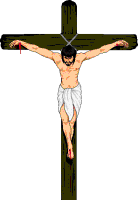
 Lesson 5
Lesson 5

Hebrews 4:14 - 5:10 - A Better High Priest
The angels never promised to bring rest. Like the prophets, they were just messengers. The great Moses did not
lead the people of Israel into the promised rest; in fact, he himself was forbidden to enter the land because of sin.
Joshua led them into their physical rest, but not into the promised spiritual rest (4:8). With those two giant leaders
now proven to be eclipsed by Jesus, the Hebrew Christian might be tempted to revert to faith in the priesthood
established by God. The great High Priest certainly looked majestic in his priestly robes. The temple was real,
but so was the persecution that was shaking the faith of these people. Could a relationship with God and spiritual
rest come from the well-established sacrifices and ceremonies conducted at the majestic temple in Jerusalem?
A priest was a mediator between the holy and the unholy. He acted on behalf of man to God in terms of offering
prayers and sacrifices for the common man. Besides his religious duties of atoning for sins, in this theocratic form
of government the Hebrew High Priest was the supreme civil head of the people and the supreme head of the
state. He worked closely with the king and was the representative of the people to the foreign rulers.
- In last week's lesson, how did the author use the plight of the Hebrews as an example for
us?
- Aaron was the 1st High Priest appointed by God to serve this young Hebrew nation. What
superior title does the Hebrew writer give Jesus in 4:14?
- How does Hebrews 4:14-15 describe Him?
- Because Jesus is our High Priest, how are we instructed to approach the throne of grace?
What can be obtained at that throne?
What can make us reluctant to approach such a wonderful throne?
- From Hebrews 5:1-3 what are the strengths and weaknesses of the High Priest system?
Strengths Weaknesses
- As great as this High Priest system was, how does Jesus surpass every other High
Priest? Hebrews 5:5-10; See also Psalm 110:4; Matthew 11:28-30; Philippians 2:8.
- What would be the advantage of having a High Priest selected from among men?
- Can you imagine Jesus praying with loud cries and tears (Hebrews 5:7-8)?
What did Jesus learn through His sufferings?
Luke 4:1-13
John 10:17-18
Philippians 2:5-8
- Why were Christ's prayers heard?
- Discuss the role of prayer in the life of a Christian.
- Who was Melchizedek (Genesis 14:17-20)?
- In what way was Jesus a priest after the order of Melchizedek?
- To whom is Jesus Christ the source of eternal salvation?
PERSONAL CHALLENGES FOR THE WEEK
- Consider the blessing in not needing a designated human intercessor when we approach
the throne of God in prayer. On the other hand, consider the blessings in interceding for
one another.
- Jesus learned through His sufferings. What can be learned through our suffering?
Women IN God's Service
The Study of Hebrews - "A Better High Priest" (lesson 5)
Ladies Bible Class Lesson, 30 January 2001
West-Ark Church of Christ, Fort Smith, Arkansas
Copyright © 2001, West-Ark Church of Christ
